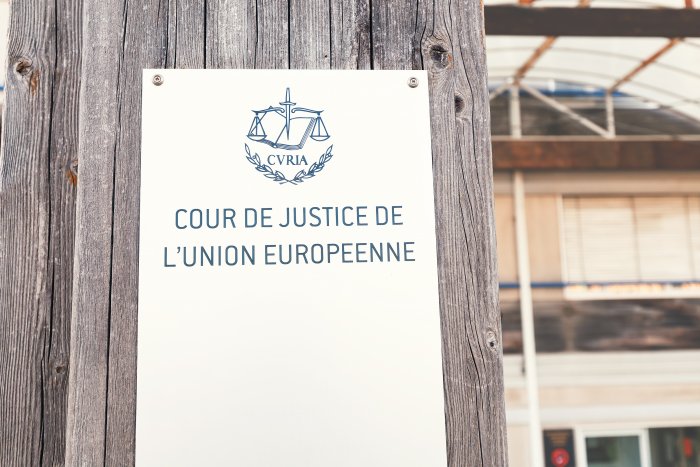The Real Estate Executive’s ‘Best Friend’: How Lawyers can Serve the Property Industry

Attila Ungár, Partner, Head of Real Estate, Lakatos, Köves and Partners
No one saw this coming. Neither the world pandemic nor the war in Ukraine and its global economic consequences were foreseeable, and the professional legal industry had to (and was able to) react somewhat faster than other sectors. This comes from the nature of the service industry – and legal advisory is a “service” – and the need to adapt to market requirements more rapidly to help our clients react to sudden changes.
It was a long time ago that pure interpretation of the law applicable to a particular case was considered a satisfactory level of legal service; professional legal advisors have become trusted advisors of their clients, understanding their markets and helping them not just in evaluating the legal risks, but also in making business decisions. This became the standard expectation, and the legal industry has adapted to this in Hungary as it has globally.
The start of the COVID-19 pandemic confronted the real estate industry with unprecedented challenges. Market players immediately started to explore how such unexpected situations can be handled legally; the typically “never negotiated” force majeure boilerplate clauses of contracts suddenly became much-scrutinized provisions. In the best case, law-making is only able to track and follow market needs and is rarely capable of forming the market.
During COVID, the Hungarian government generally took the approach, unlike many other nations, not to intervene in the real estate market’s commercial arrangements. This later turned out to be the right choice, as many governmental interventions into lease relations did not consider the complexity of real estate investment financing.
Consequently, lawyers were left applying general legal provisions to an exceptional situation without any comparable judicial precedents; there had never been such a sudden halt to the global economy in modern history, making the completion of contracts in some cases impossible. Remarkably, to preserve business and to avoid the risk of uncertain legal outcomes, the commercial rationale of the market resolved most problems, evading the “legal path;” tenants and landlords negotiated, with rent reliefs granted to the extent justified.
The economic effects of COVID-19 could still be detected when the war in Ukraine started in February 2022, causing new challenges. The energy crisis, rise in construction prices, double-digit inflation, and dramatic currency exchange fluctuations are all causing significant uncertainties, not to mention geopolitical tensions, while new property investments are looking for stability. As real estate lawyers active in various segments of the commercial property market, we have the privilege of overseeing several sectors. While the uncertain environment is threatening for some, it is inviting for others who have greater risk appetites. Greenfield investments relating to the shortening or nearshoring of supply chains and popular green energy projects are progressing, while logistics players continue to look for the “scarce resource” of limited available development plots to build up their land banks. In such unpredictable times, flexibility is the key; lawyers can help by mirroring this in the various legal relations, such as transactional agreements, leases, and construction agreements.
There also seem to be new opportunities, possibly creating new investment asset classes in Hungary. Homeownership is traditionally high in Central Eastern Europe, Hungary included, ranging between 90-96% per country. However, the recently experienced substantial increase in residential prices, which has not been matched by wage increases, together with rising bank financing costs, could drive home users towards apartment leasing, subject to rent levels being able to increase to compensate for higher construction costs and land prices.
Although there does not seem to be a link between apartment prices and home ownership ratio (in Germany and Austria, for example, homeownership is 50-55%, while apartment prices are still substantially higher compared to Hungary), built–to-rent apartment houses might be attractive for the new generation in Hungary growing up in the “digital nomad” lifestyle, and already used to car sharing and similar services. Also, the continuously declining condition of the public health service is driving patients to the private sector, strengthening the viability of such businesses, thus making the facilities occupied by them a solid target for real estate investors.
In any event, lawyers who do not only have the essential legal skills and relevant experience but who also understand the market will remain one of the “best friends” of real estate executives, helping them to maneuver amongst upcoming challenges as they arise.
This article was first published in Top Real Estate Executives in Hungary 2022 on July 29, 2022.
SUPPORT THE BUDAPEST BUSINESS JOURNAL
Producing journalism that is worthy of the name is a costly business. For 27 years, the publishers, editors and reporters of the Budapest Business Journal have striven to bring you business news that works, information that you can trust, that is factual, accurate and presented without fear or favor.
Newspaper organizations across the globe have struggled to find a business model that allows them to continue to excel, without compromising their ability to perform. Most recently, some have experimented with the idea of involving their most important stakeholders, their readers.
We would like to offer that same opportunity to our readers. We would like to invite you to help us deliver the quality business journalism you require. Hit our Support the BBJ button and you can choose the how much and how often you send us your contributions.





KOENIGSHOFER%20MICHAEL_3zu4_PRINT-CUT-SMALLER.jpg)
-SMALLER-CUT.jpg)


